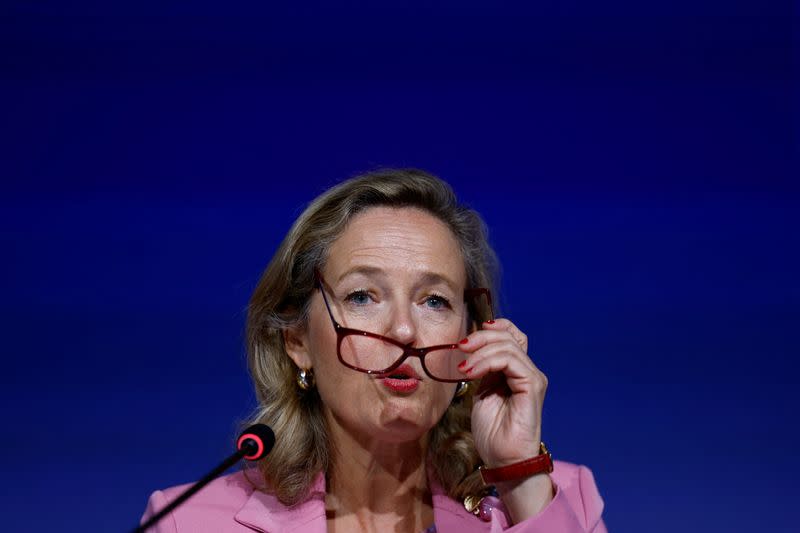Germany's Scholz backs Spain's Calvino for EIB presidency

FRANKFURT (Reuters) - German Chancellor Olaf Scholz on Saturday backed the candidacy of Spanish acting Economy Minister Nadia Calvino for the post of president of the European Investment Bank (EIB).
"I think she will be a very good president of the EIB," Scholz said in an address to a weekend congress of the Party of European Socialists (PES) in Malaga, Spain.
He added that they had worked well together in the past when they headed their respective countries' finance ministries.
Scholz's stance is significant for Calvino's candidacy because Germany, together with France, is a heavyweight in the EIB, an important body for the development of European Union (EU) countries.
This gives Berlin a major voice in discussions ahead of a meeting of EU finance ministers on Dec. 8 to decide on a new head.
The EIB is currently led by German Liberal Democratic Party (FDP) politician Werner Hoyer.
As the world's biggest multilateral lender for infrastructure, and thus key to new ways to fund the climate transition, the EIB will have to choose between a higher-risk path and sticking to its core mission.
(Reporting by Andreas Rinke and Vera Eckert, editing by Kirsten Donovan)

 Yahoo Finance
Yahoo Finance 